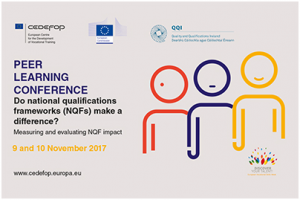‘Do national qualifications frameworks (NQFs) make a difference?’ was the key question raised by a Cedefop conference on 9/10 November 2017, to which Jörg Markowitsch had been invited as a keynote speaker.
Before 2005, qualifications frameworks were in place in three European countries: France, Ireland and the UK. By 2017, NQFs have been introduced by all 39 countries taking part in the implementation of the EQF. Given that these NQFs are becoming increasingly operational, questions regarding their added value and their impact are particularly relevant.
The aim of this conference, which took place on 09/10 November 2017 in Thessaloniki, was to stimulate open and critical reflection on the current and future role of NQFs, exploring whether they make a difference in policies and practices and to the learners and citizens they are supposed to benefit.
3s’ Jörg Markowitsch had been invited to the conference as a keynote speaker, where he reflected on NQFs as a topic for academic research. His literature review led to the conclusion that NQFs are not a preferred topic for researchers in education but also provided suggestions on how research on the topic of NQFs could be taken forward in the future.
3s colleagues Karin Luomi-Messerer and Monika Auzinger, who have both worked on a large number of NQF and EQF-related projects and studies, also attended the event. 3s has been actively involved in NQF/EQF development and implementation for many years – both at Austrian national level and at European level, by providing expertise to the European Commission and Cedefop.
Please find enclosed a pdf version of Mr. Markowitsch’s presentation on "NQFs as a topic for academic research".


